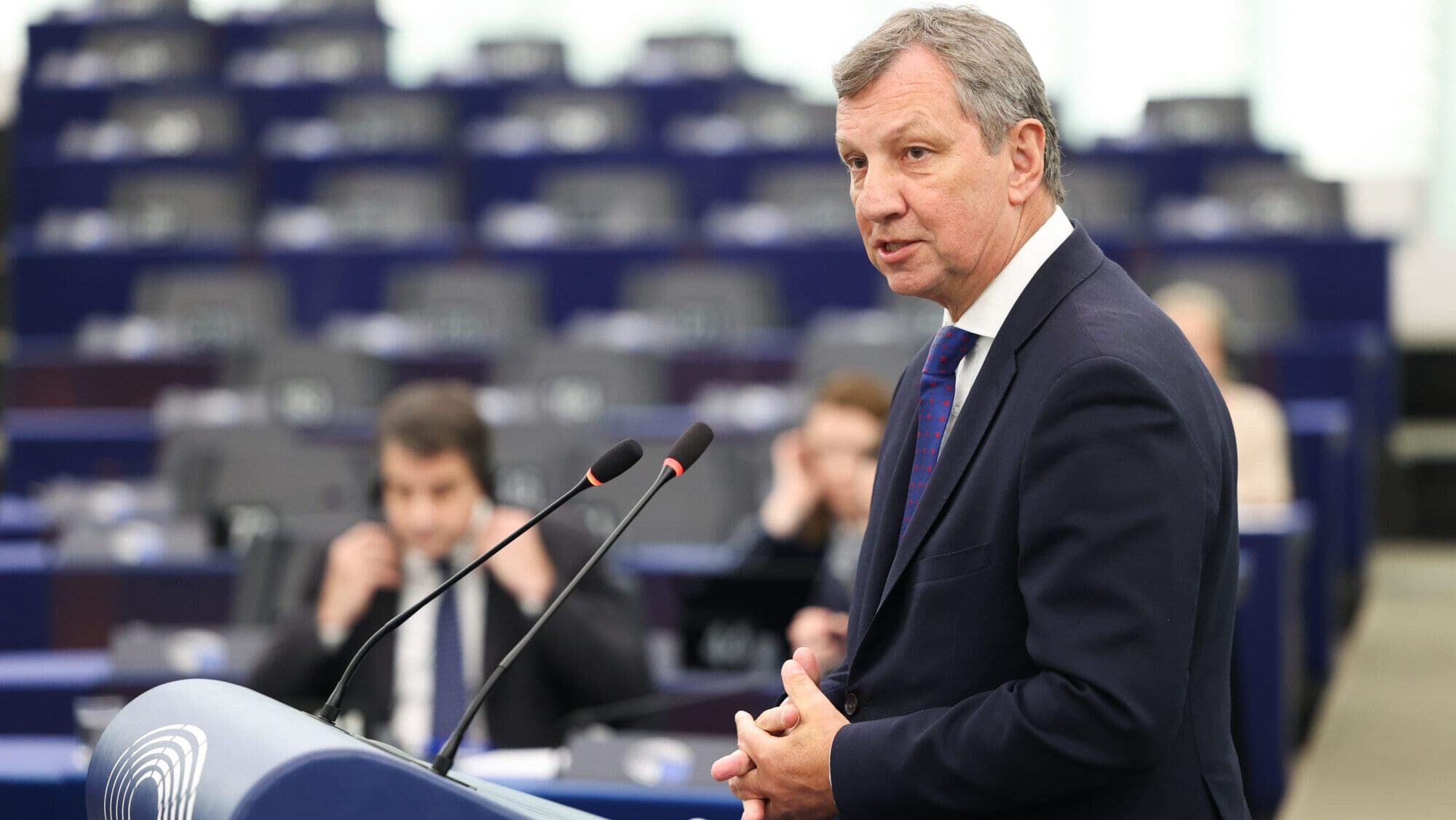
MEP Andrzej Halicki (KO/EPP)
Photo: Alexis Haulot / © European Union 2025 – Source: EP
Accused by the Left of being traitors for months, the center-right European People’s Party (EPP), the EU Parliament’s largest group, now faces an internal challenge led by its Polish delegation over occasionally siding with the conservatives in legislative votes.
Although it’s only a rare exception, MEPs of the Polish ruling party Civic Coalition (KO)—EPP’s third largest delegation after the German CDU and the Spanish PP—believe that the center-right should stick to its traditional alliance with the Left in every question, regardless of voter expectations.
“In the end, [the conservatives] are against all [texts] where Europe seems stronger, better organized … why cooperate with them on the small details?” MEP Andrzej Halicki, the leader of the Polish delegation asked. “I don’t see the sense.”
The question of how strict the cordon sanitaire against conservatives should be came up again last week when the EPP supported a few right-wing amendments in the EP plenary. Not entire texts or legislation, only minor language tweaks, such as protesting women’s treatment in Iran in a resolution that only condemned the persecution of political dissidents.
When it mattered—such as with the amendment to the 2026 EU budget recommendations that would have called for more funds for border control, for instance—the EPP pulled out of its deal with the conservatives at the last minute due to leftist (and likely internal) pressure.
The irony is that at home, Donald Tusk’s KO presents itself as one the most anti-migration ruling parties in the EU, yet its members in Brussels advocate against voting for anything that’s also supported by the so-called “far-right,” and instead would join leftist parties who want to dramatically increase migration to Europe.
It’s true that the EPP has been increasingly voting together with the Right on certain issues since the 2024 EU elections rearranged the balance of power in the Parliament, but only by necessity and not out of any genuine desire to actually start acting like a center-right party.
Replying to the Polish remarks, a spokesman for Weber insisted that there’s no such a thing as a ‘rightward shift’ in the party. The EPP remains committed to the ‘Ursula coalition’ with the socialist S&D, the liberal Renew, and the Greens, he said, and being “pro-EU, pro-Ukraine, and pro-rule of law” are still the party’s requirement for collaborating with anyone.
At the same time, other Weber loyalists hit back at the accusations with the opposite argument, saying that limited collaboration with the Right is necessary to push through certain policy priorities, such as the slight shift in migration climate that EPP members (like the CDU) have been pursuing in the past year due to widespread voter dissatisfaction.
Nonetheless, Halicki and others opposing Weber insist that decisions must reflect both the EPP line and a compromise with the Left so that conservative parties remain fully isolated.
EPP’s internal conflict was also laid bare in a striking example last week, when a faction of the party rebelled against the EPP’s own transparency initiative to review certain contracts with climate NGOs before resuming their funding in next year’s budget—the same program that is under suspicion of having been abused to finance illegal lobbying in favor of the Green Deal—and managed to shut it down because the motion was supported and co-authored by the Patriots and the ECR as well.
Still, despite the growing conflict and years of dissatisfaction with his ‘authoritarian’ leadership, Weber’s position at the helm of the party remains practically unchallenged. He’s set to be reelected for another term during the EPP’s upcoming congress in Spain, and even the Polish delegation is supportive of him. “For the time being, I don’t see any alternative,” said Halicki.
